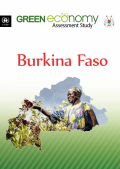
This Green Economy Assessment Study – Burkina Faso has been prepared under the scope of UNEP’s Green Economy Initiative (GEI), which was launched in 2008. The overall goal of this study is to facilitate Burkina Faso to seize the opportunities that transitioning to Green Economy can offer.
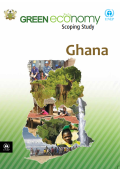
The aim of this Green Economy Scoping Study: Ghana is to identify how Ghana can transition to a green economy. The study focuses on agriculture (cocoa and fisheries); forestry and logging; and industry (electricity, water and sewage) as initial sectors for greening the economy in Ghana.
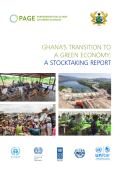
This report Ghana's Transition to a Green Economy: A Stocktaking Report provides an analysis of ongoing green economy related activities in Ghana and provides the basis for further actions leading to the eventual adoption of policy options, especially in the frame of the development plans and policies in the country.
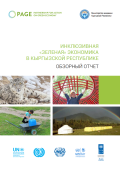
Kyrgyz Republic joined PAGE in 2016 and this Kyrgyz Republic Stocktaking Report outlines the country’s macro-economic performance, opportunities for sectoral reforms, innovation strategies, regulatory frameworks, existing green economy practices, and challenges for further green economy action.
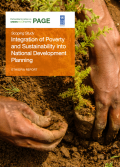
The objective of this Scoping Study: Integration of Poverty and Sustainability into National Development Planning is to assess the extent to which Ethiopia has adopted integrated approaches in its development planning process and transitions to more inclusive, greener economies; and, identify the remaining gaps, the key challenges, bottlenecks and constraints faced towards integration and the reasons for these challenges.
